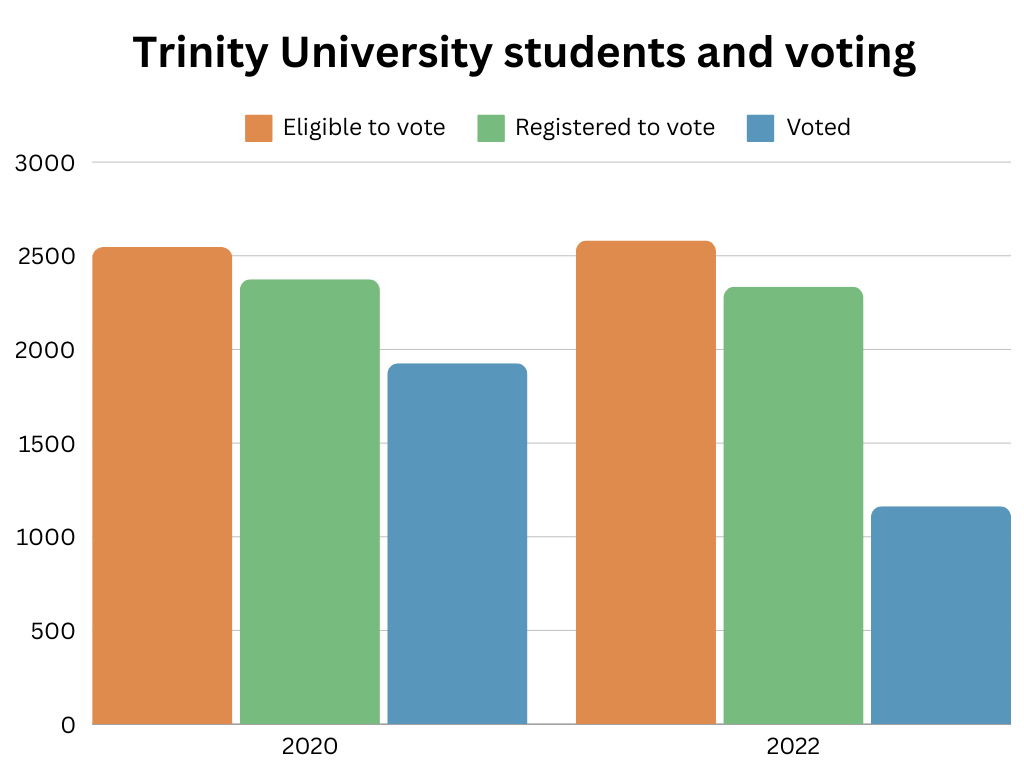My last column focused on how you should ask for a letter of recommendation. This one explains what I want from you when writing that letter. When I sit down to write an argument on your behalf, I need the best possible information to make your case. To achieve that objective, I generally ask for an unofficial transcript, copies of graded work from my classes, resume and intangible qualities that cannot be measured by class performance. I will explain the purpose of asking for each one of these things.
First, I like to examine an unofficial transcript not only to see your cumulative grade point average, but trends in your grades and the courses that you have taken. If your grade point average is higher than the average student at Trinity, this makes my job easier when writing a letter. If you have a 3.7 or higher, I may even write that your cumulative grade point average is in the “stratosphere.” If there was a low point in your grades, but you later improved I can emphasize that point. In connection with courses taken, I want to make sure you have the necessary classes that make you the best possible “fit” for the position or program in which you are applying. If you seek to attend graduate school in public policy, for example, I would like to mention in my recommendation that you have taken a public policy class, micro and macro economics, a research methods class, and a statistics course, which focuses on descriptive and inferential statistics.
Second, I like to review your graded work when writing a letter of recommendation. I can discuss your work in my class more precisely than if you do not provide this information. If I were discussing a research paper, for example, I may be able to generally write that your analysis contained a tightly woven thesis accompanied by lucid prose and cogent argumentation. Yet, I think it is far better to write that you successfully argued that Proposition 8 offended the Equal Protection Clause because the law is not rationally related to a legitimate legislative objective. I could explain how you defend your position and debunk the adversary’s stance. I may also want to discuss the types of scholarly sources used in your analysis, such as scholarly texts, peer reviewed and law review journal articles, court cases, and other government documents. By discussing your individual work in my class I am showing the person reading the recommendation that I know you well.
Third, a resume is most helpful in writing about your practical experience, volunteer work, hobbies, and university involvement. A good resume really helps me gain insight into the complete person behind the student. To make sure that you have the best resume possible, I highly urge you to visit Career Services. I have worked extensively with Brian Hirsch and Twyla Hough in that office. They are fantastic, and both make your resume more professional and put you in the best possible light. You do not have to pay one cent to visit them. Once you have a polished resume ““ both in terms of presentation and substance — I use that information for a variety of purposes in my recommendation. If you have donated countless hours to a charity, I may discuss how you partially measure your success in life by your greater contribution to the community. If you have worked or interned in jobs related to the position you are applying, I can discuss how those experiences will benefit the organization. I may also focus on how those previous positions provide a nice practical balance to the theoretical training you received at Trinity. Hobbies or university involvement (e.g., serving on ASR, president of your sorority, or playing a sport), which may seem unrelated, can be useful for a variety of reasons. For example, I have had two exemplary students who were competitive equestrians. They traveled and competed while taking a rigorous course load. These top students were able to manage two challenging and demanding tasks simultaneously. How useful would that knowledge be to the person reading your recommendation?
Fourth, I ask for any intangible qualities, which means a quality you possess but may not be measured by class performance. This intangible quality is something that may help define you in a special way. My students generally do not like giving me this type of information. Most of the time my students do not include this information or it is too vague to use, even though I explain what I want. For example, if you are the first in your family to go to college, this type of information is invaluable in writing your letter. If you were diagnosed with cancer as a child, I can use this information to explain personal triumphs about you.
In sum, there is a positive correlation between the information provided and the strength of your letter. I hope this column was helpful and I bet other professors on campus may share some thoughts on this issue.
John Hermann is an associate professor in the political science department.





